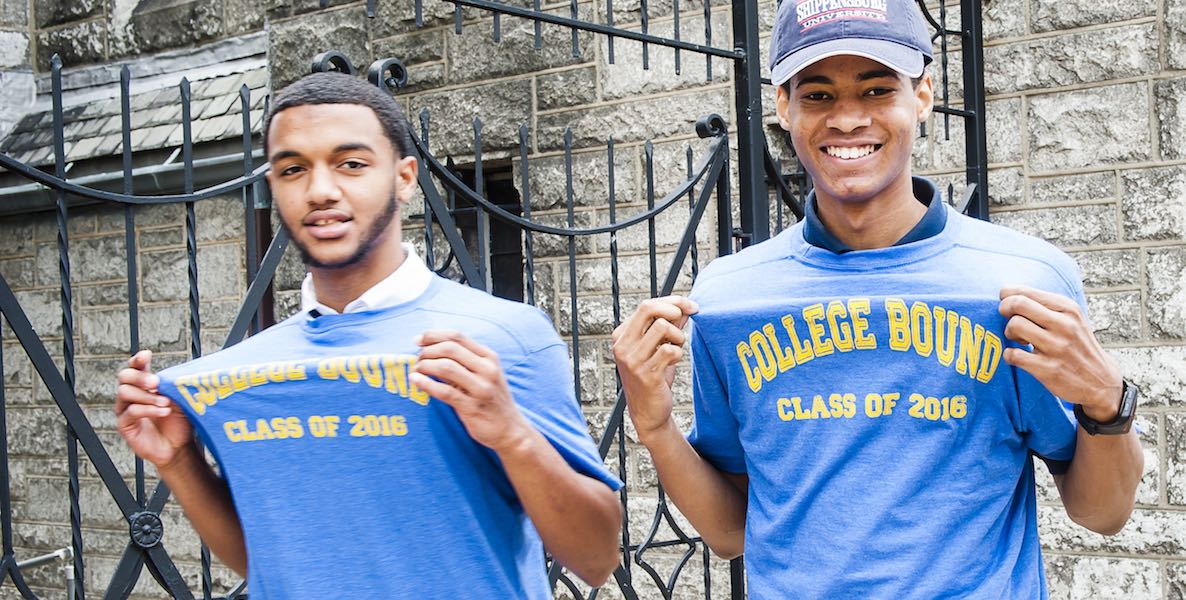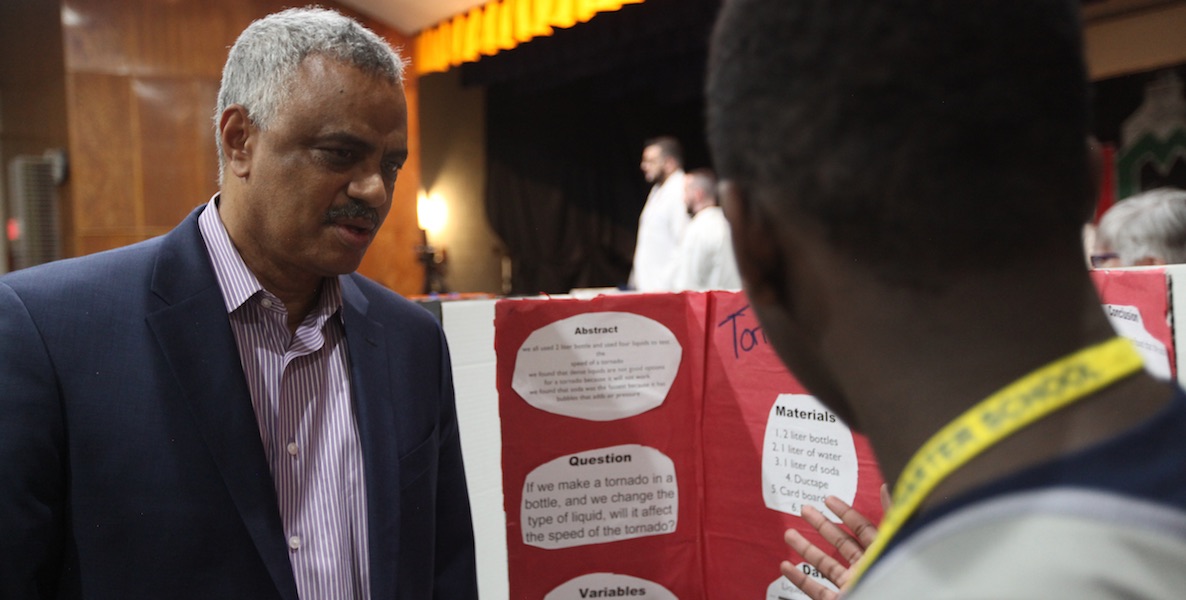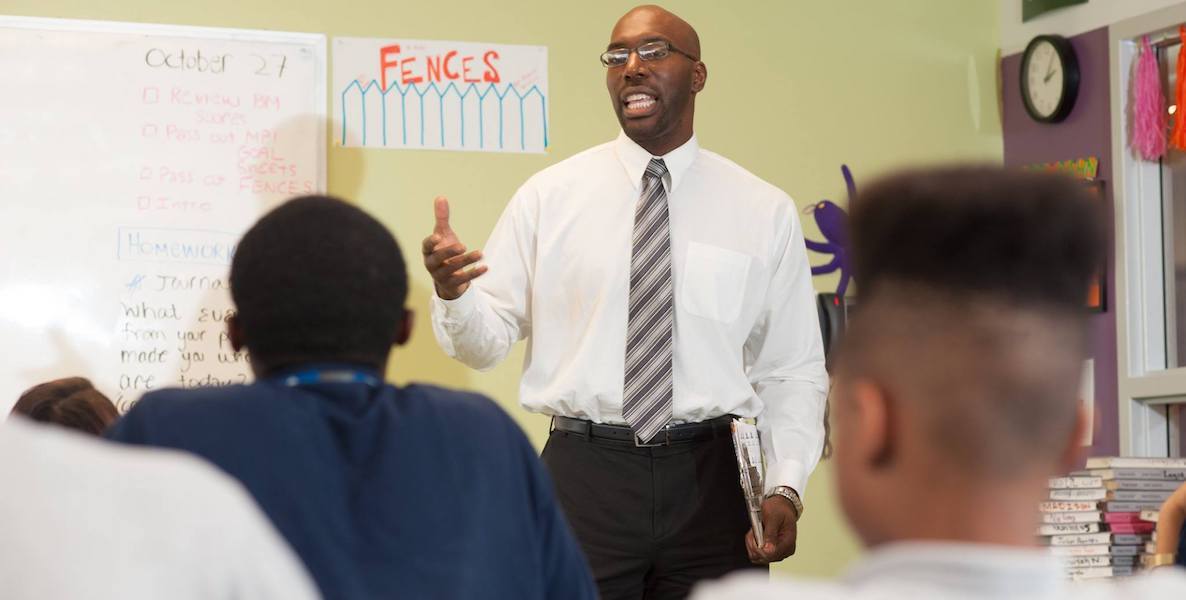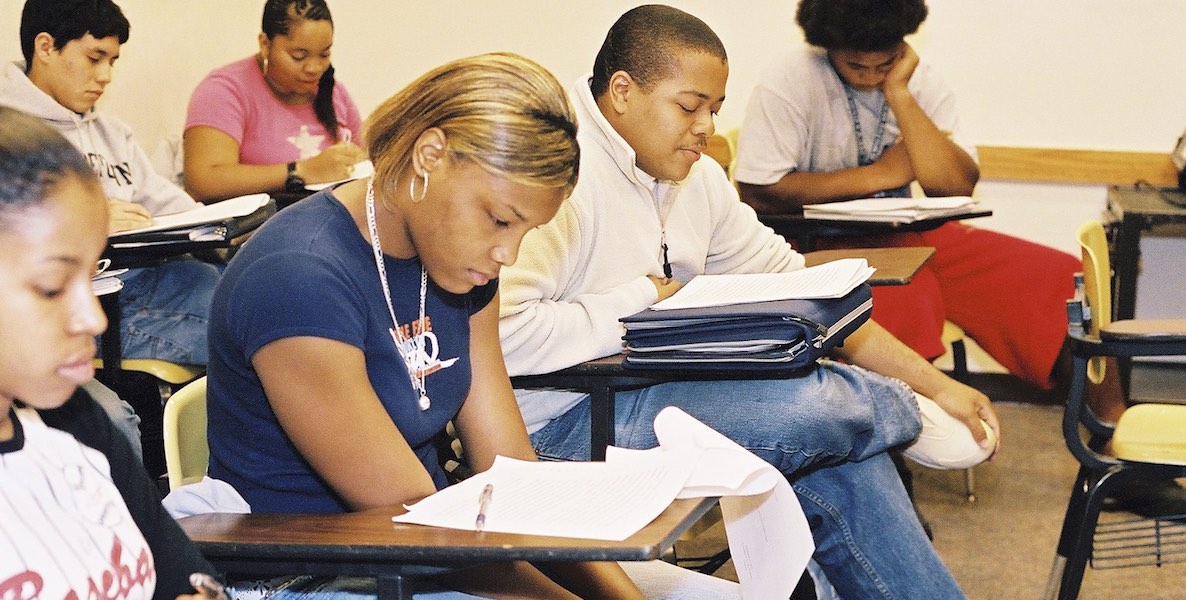“Mr. El-Mekki, I’ve been thinking. I want to be a teacher.”
In my 24 years as an educator, I’ve never tired of hearing this from any of my former students. But when an African American male student, like Rasheen Hill, tells me this during a recent visit to his high school alma mater, I feel a special pride that comes with a re-energized, palpable hope for better days for future generations. A pride that’s grounded in rigorous research.
The much-discussed and written-about Johns Hopkins University study on the long-term positive impacts of same-race teachers reinforces what a lot of us educators—and all members of The Fellowship (Black Male Educators for Social Justice)—have known a very long time.
Students matched with a same-race teacher not only benefit from more favorable teacher perceptions, they also perform better on standardized tests and graduate from high school at higher rates. Just exposure to a same-race teacher increases the likelihood that African American students will want to go to college.
Students matched with a same-race teacher not only benefit from more favorable teacher perceptions, they also perform better on standardized tests and graduate from high school at higher rates. Just exposure to a same-race teacher increases the likelihood that African American students will want to go to college. That this impact was shown to be even more significant among children from the most economically-disadvantaged neighborhoods is not just a research footnote for us.
As David Jackson, an African American teacher who is a 10-year veteran of New York City public schools recently put it in a New York Times opinion piece: “For black students, having even one black teacher can make a huge difference.” Jackson goes on to talk about how his students trust him because he shares similar experiences with them and because he’s taken the time to be a part of their lives. And this trust provides a powerful foundation for life-changing instruction. Brent Staples, a product of Chester, Pennsylvania, recently wrote about his experiences as a black student with black teachers as well.
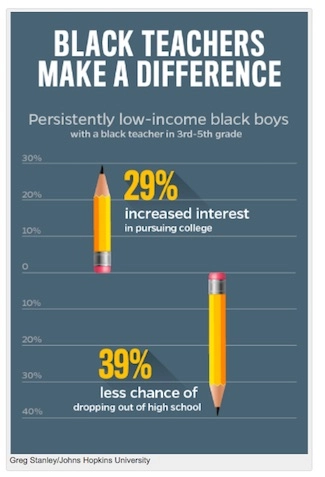 In Philadelphia, even though the four percent of African American male classroom teachers is double the national percentage, we still lag far behind what’s needed to help our students, 50.49 percent of whom are African American. This is why my colleagues and I have set for ourselves a bold agenda of tripling the number of Black male educators—to 1,000—by 2025.
In Philadelphia, even though the four percent of African American male classroom teachers is double the national percentage, we still lag far behind what’s needed to help our students, 50.49 percent of whom are African American. This is why my colleagues and I have set for ourselves a bold agenda of tripling the number of Black male educators—to 1,000—by 2025.
To get there, we’ve set smart strategies for hiring and retaining black male teachers, starting with the transition of the Fellowship from a volunteer-run organization to one that is led by full-time educators and administrators. We are fundraising now to hire a staff person because the work of supporting current and aspiring black male educators can’t just occur after school and on weekends. We will also be able to work more directly with the School District, which announced to City Council recently that they are partnering with The Fellowship; we have already collaborated with their talent development team, and hope to do much more with them, and their strategic partners.
It’s important for people unfamiliar with The Fellowship to understand that our efforts not only support current and aspiring black male educators, but advocate for critically-conscious and highly-effective black men to step into the classroom. A black person, let alone a black male educator, who peddles the same white biases against blacks that historically undergirds many schools is of no benefit to any student. There is a critical consciousness that is needed by all educators; but black teachers who fail to educate their students from a liberating perspective can do more harm than good.
On Saturday, we’re holding our sixth black male educator convening, designed to present how educational justice and content expertise are integral ingredients in the building of an effective teacher. We’re expecting some 150 teachers, principals and other administrators from across Philly’s traditional and charter schools. For the first time this year, we are taking an “Edcamp” approach, a participant-driven teacher development approach that allows for more voices to be heard among black male educators.
The Fellowship began as a 17-member group that met monthly to discuss wins and challenges in our classrooms and schools; now, we count more than 665 as members focused on several important issues: Directly supporting current and aspiring black male educators through recruitment and retention efforts; advocating (and agitating) for policies and practices that support and empower black men; and connecting and professionally developing black male educators through our convenings.
Our goal is to have every single student in our region have a diverse group of teachers that includes at least one highly-effective black male teacher. We know that those types of experiences will lead to educators experiencing a visit from a former student, like the one I had from Rasheen. Now a West Chester University student, soon to be adding education-related coursework, Rasheed proudly sported his Alpha Phi Alpha jacket the day he stopped by. Clearly, he is getting ready to lift as he continues to climb.
Sharif El-Mekki is the principal of Mastery Charter School–Shoemaker Campus, a neighborhood public charter school in Philadelphia that serves 750 students in grades 7-12. El-Mekki will be contributing regular columns from the school front lines this year.
Mastery Charter Schools



